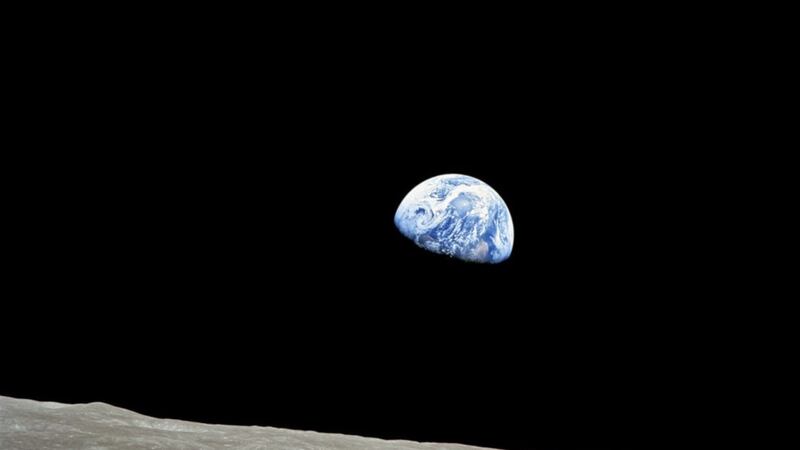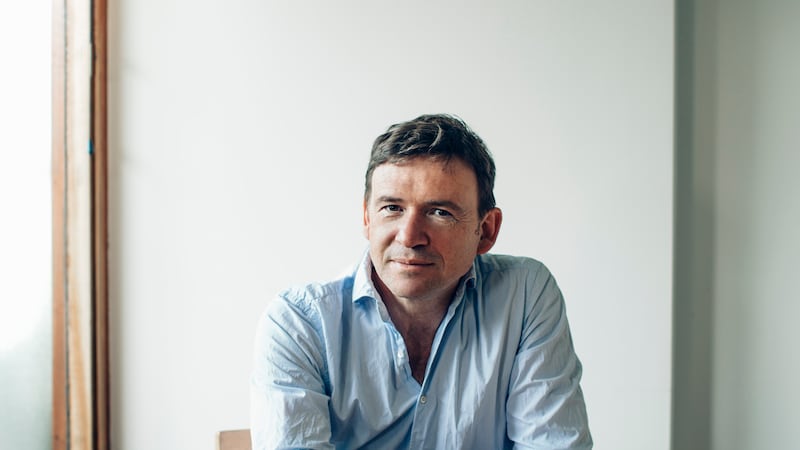IN 1968, Apollo 8 made the first manned orbit of the moon. One of the astronauts, William Anders, looking back to the Earth, took a photograph, and, for the first time, humanity viewed the earth from outer space.
That photograph emphasised the smallness of our Earth in the vastness of the universe, but it also revealed its stunning beauty - a beauty which could only move the hearts of believers to praise God, source and sustainer of all creation.
When we fly high and look down from above we see things from a different perspective.
St John the Evangelist is symbolised by the eagle. This was because it is said that John, like an eagle, could fly higher than the other Evangelists, and therefore saw things from a different perspective.
He opens his Gospel with the words: "In the beginning was the Word: the Word was with God and the Word was God."
Before we ask what this means, we must appreciate what is happening.
St John, like an eagle, soars high above the crib taking us outside time, and outside our world, so that we can see the child in the crib, not just as a child, but as the Son of God - "The Word made flesh".
St John invites us to raise our minds to where the eagle flies, and to share his vision.
Do you remember the very first words of the Bible? It opens with the words: "In the beginning God created heaven and earth."
But this Earth, God's beautiful creation, was corrupted by the sin of Adam and Eve.
John opens his Gospel with a similar sentence: "In the beginning was the Word."
As John soars above the crib, he sees in Jesus the extraordinary plan of God to recreate the world and to "renew the face of the earth".
Perhaps you have noticed that in the opening verses of his Gospel St John doesn't call Jesus by his name, but refers to him as the Word. Why does he do this?
As you and I speak to one another we communicate, not just by words, but in other ways too; we communicate how we feel, what we believe, and the influence of our experiences - we do so verbally and non-verbally.
But none of us can communicate everything about ourselves. Because our horizons are limited by the legacy of original sin, we only communicate fragments about ourselves.
As John looks down on the world, he sees not only the wonder of God's love and mercy, he sees also the tragedy of sin
Only God can communicate himself entirely, only God can say all that can be said about God, and God does so, not just verbally but in a person.
In Jesus Christ, God says everything that can be said about God; Jesus is the Truth, the first and last Word.
This is what St John wants us to see, and understand, as we kneel before the crib: "No-one has ever seen God; it is the only Son, who is nearest to the Father's heart, who has made him known."
As John looks down on the world, he sees not only the wonder of God's love and mercy, he sees also the tragedy of sin.
He writes: "The Word was in the world... and the world did not know him. He came to his own domain and his own people did not accept him."
We, however, pray that God may "enlighten the eyes of our minds", that we may open our hearts to accept the one who blesses us in so many ways (Ephesians 1:5-6).
John now challenges us to share in his vision; he says, "raise your minds to where the eagle flies and understand these amazing words", "But to all who did accept him he gave power to become children of God".
What does he mean? In Jesus, God stooped down to us, and lifted us up to share in God's own life.
We are chosen, held in the arms of God as his adopted children. Quite simply, God loves us; this is salvation; this is the message of the crib.
This is the Truth; this is the Gospel; this, indeed, is the Good News.
Lord Jesus, we pray to you:
You are the Word of your Father - reveal him to us.
You are the light that shines in the darkness - enlighten us.
You have come into the midst of your own - dwell among us.
You gave us the power to become the children of God - receive us as brothers and sisters.
You set up your tent among us - stay with us.
You are the Son, full of grace and truth - save us.
Amen.
Fr Edward O'Donnell is parish priest of St Brigid's in Belfast.



